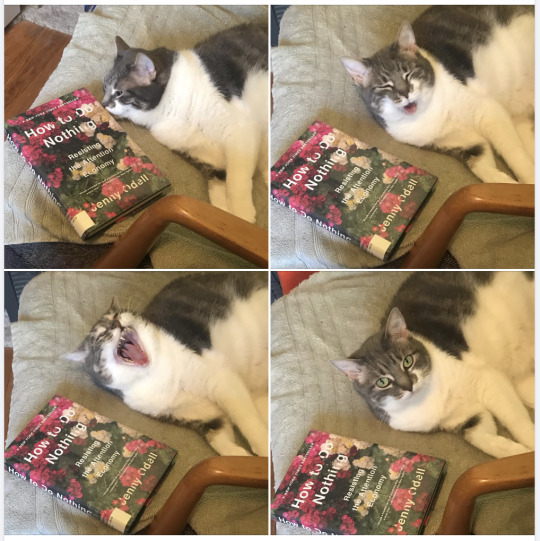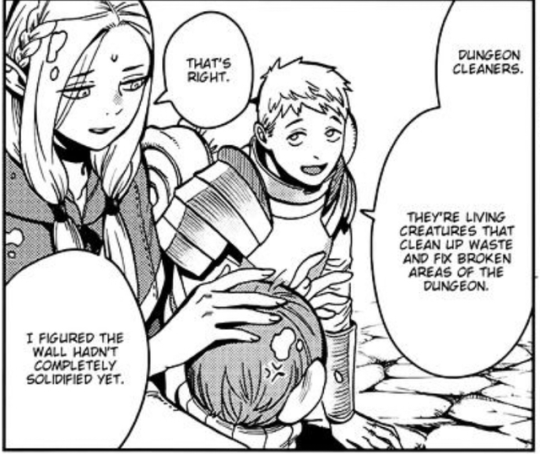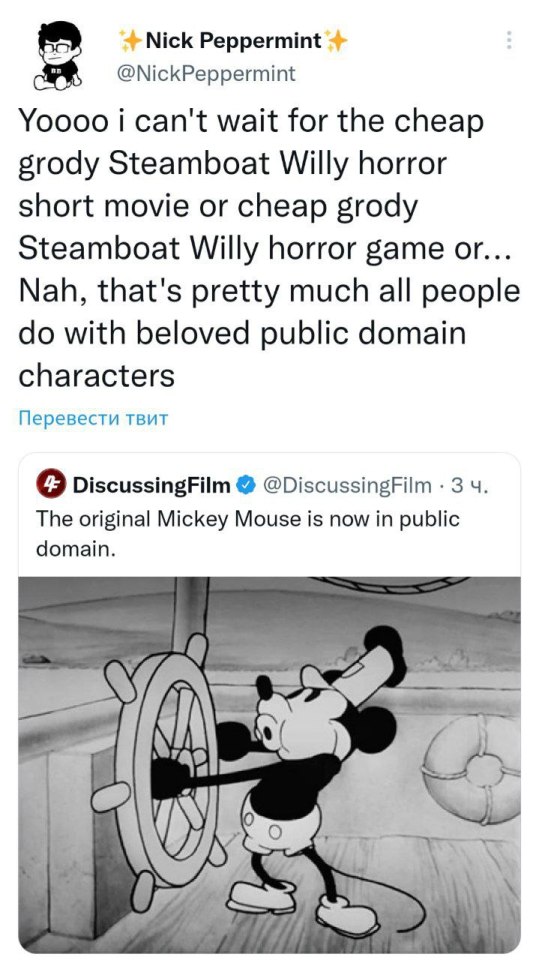#how to do nothing
Explore tagged Tumblr posts
Text


4/13/2024
Hung out at a local Serbian cafe and the coffee and food were delightful.
I’m chipping away bit by bit at residency onboarding requirements.
I’m currently reading How To Do Nothing by Jenny Odell which is excellent, so far I really recommend it!
#emgoesmed#studyblr#studyspo#med student#med school#med studyblr#productivity#coffee#weekend#books#reading#how to do nothing#jenny odell#I have so much on my to do list#but taking a break#to read and drink some good coffee#is very important
145 notes
·
View notes
Text

It is useless to attempt to instruct a true master of the form.
#cat#cats#how to do nothing#happy caturday#cat memes#cats and books#how to do nothing book#willow#not trek
200 notes
·
View notes
Text
“In the face of the increasingly materialist and pragmatic orientation of our age … it would not be eccentric in future to contemplate a society in which those who live for the pleasures of the mind will no longer have the right to demand their place in the sun. The writer, the thinker, the dreamer, the poet, the metaphysician, the observer … he who tries to solve a riddle or to pass judgement will become an anachronistic figure, destined to disappear from the face of the earth like the ichthyosaur and the mammoth.”
giorgio de chirico
3 notes
·
View notes
Text
Literally 2 Cents: How to Do Nothing, Vol. 2
Information overload is a type of sensorship -- a new episode from Literally 2 Cents! #podcast #content #literally2cents
We put up our most recent episode this weekend, the second part to our series exploring “How to Do Nothing” by Jenny Odell. This week, we talked about context collapse… you know, how you’ll be scrolling Twitter and see several disparate events that have nothing to do with each other — or with you? Social media and other online content has taken a lot of the context out of how we interact with…

View On WordPress
4 notes
·
View notes
Text
“In After the Future, the Marxist theorist Franco “Bifo” Berardi ties the defeat of labor movements in the eighties to rise of the idea that we should all be entrepreneurs. In the past, he notes, economic risk was the business of the capitalist, the investor. Today, though, “‘we are all capitalists’…and therefore, we all have to take risks…The essential idea is that we should all consider life as an economic venture, as a race where there are winners and losers." ... "In the global digital network, labor is transformed into small parcels of nervous energy picked up by the recombining machine…The workers are deprived of every individual consistency. Strictly speaking, the workers no longer exist. Their time exists, their time is there, permanently available to connect, to produce in exchange for a temporary salary. (emphasis mine)"
How to Do Nothing (Jenny Odell, 2019)
#this tumblr is now a notes taking app for my reading#Franco Berardi#Jenny Odell#How to do Nothing#capitalism#text
3 notes
·
View notes
Text
...weird amount of dunmeshi fans have been saying being a caretaker in a relationship is the worst thing ever..marcille must want to killl everyone soo bad because doing things for people suuuucks sooo muchh






it's an act of love, not just a job i promise. we all want someone who's willing to take care of us in some way, just like how senshi shows care for others by cooking for them :'|
#marcille donato#dungeon meshi#dunmeshi#laios touden#falin touden#chilchuck tims#izutsumi#delicious in dungeon#this is also about kabru and mithrun stop focusing so hard on how it was ‘forced upon’ kabru as if it’s the most evil thing in the world#they took care of EACH OTHER during that time and mithrun wasn’t doing nothing#people are so weird about him and reduce mithrun down to his disability as if he isn’t CAPTAIN for a reason#it’s sooo insane#try thinking about how their time together serves the themes of the story rather than a biased interpretation#of all the things that happen in this manga people focus on the weirdest things to apply to real life#people try to construe is as something evil with evil intent as if it’s not there to benefit the THEMES of the story#woah a huge...heron? just landed on a tree i've been staring at it for like 10 minutes its pretty#dungeon meshi spoilers
24K notes
·
View notes
Text
not just loving people who can't work, but also people who also choose not to work. good for you. great anti-work praxis.
choosing not to work reinforces the systems that exist to support people who cannot work. using those resources strengthens their cause to ask for more budget. it makes you aware when those resources change or are taken away. It also makes you sexy and more interesting (1 of 10 things employers don't want you to know about unemployment!)
we should be allowed to not have to work all the fucking time
P.S. ALWAYS fucking apply for unemployment. Even if you were fired. Even if you were forced to quit. You may still qualify AND might increase your employer's UI tax rate.
since ive regularly needed these reminders over the past month or so since i quit: not working is completely morally neutral. everyone deserves respect and dignity regardless of employment status. ones ability to work should not determine their worth etc etc. i love my unemployed baddies
18K notes
·
View notes
Text
Weekly Update (1/9/2024)
Hello hello! I'm late to this update yet again, but it is what it is. I had a nice week, though :)



I started reading again! I read 30% of How to Do Nothing: Resisting the Attention Economy... and then just skimmed through it—it wasn't what I was looking for. Same thing happened with Digital Minimalism in Everyday Life, a book more about the practical side of digital minimalism. However, I was expecting an approach other than "you don't need to ditch modern tech, just use it in moderation!! productivity!!1!!11!", especially after reading How to Do Nothing. I am tired of looking at screens and doing so much every single day, and would love to find a read on people like me, who are embracing older tech (or just ditching modern alternatives altogether); I'm aware it's not practical, but for folks who don't work with tech for a living, you don't really need to be online 24/7, be it in your digital life or in real life.
It's kinda baffling my family (and even past friends) saw me not wanting to be on whatsapp or social media, or even going as far as ditching my smartphone, and thought "he doesn't want to talk to us". It's not like I'm the most sociable person to begin with, but if you want to talk to me, you can talk, call, or even message me directly through the phone, instead of relying on an app.
Anyway, I'm also reading Totto-chan: The Little Girl at the Window and it's sooo lovely! I miss being a kid and being in the countryside. I never visited Japan, but I only want to visit its countryside, if I'm being honest. There's something about the calm of it all—not exclusive to Japan, fortunately.
Unfortunately I have no VN readings to comment on since my job has been so tiring that I can't look at screens for very long. My sleep schedule is a mess and I can't wait to get back to my early schedule.
I'm still playing Needy Streamer Overload—only 2 endings left!—and I'm enjoying it a lot :) I can't wait for Yunyun Syndrome!? Rhythm Psychosis uuuugh

Still watching Serial Experiments Lain and really enjoying it!! I didn't make much progress this week due to work, but I am determined to finish it this week, and today is my final day of work :)

I finally started the famous Avatar: The Last Airbender and I'm enjoying it a lot!! I'm on episode 3 (Part 1) and I had forgotten how fun these types of series are. Last time I remember being this invested and entertained with a cartoon is with 2016's Voltron: Legendary Defender. In a way, Sokka reminds me of Lance and the internet tells me I wasn't the only one thinking that.

So, I watched Carol! I'm noticing I'm going through a lot of queer movies these past days, and they are all so depressing and bittersweet. It's like a guilty pleasure: it upsets me and I love it at the same time. That is to say, I'll give this a 3/5—it wasn't a bad movie by any means, but it didn't stand out to me.



On that note, I also watched Ammonite! This was a more interesting movie to me, although I wish they could have maybe developed it more. It felt to me like their relationship was somewhat rushed, although the ending was pretty good food for thought: 3.5/5 stars.
And that is it for the week! Tell me what you've been doing these days in the comments~
#bookblr#blog#queer#movies#ammonite#lain#serial experiments lain#carol#avatar the last airbender#voltron#How to do nothing#Digital Minimalism#totto chan
1 note
·
View note
Text
Jenny Odell and Discovering Life Beyond the Clock (Encore)
Excerpt from the book cover, reading “Saving Time: Discovering a Life Beyond the Clock” superimposed on top of orange and pink geological features. Credit: Penguin Random House Have you ever really considered how we view time as a society? From work to leisure to appointments, we schedule every minute of our days, but how often do we think about why we treat time the way we do, our relationship…

View On WordPress
#capitalism#chronodiversity#chronology#climate change#climate disaster#clocks#colonialism#colonization#extraction#fossil fuel industry#future#geologic time#history#hope#How to Do Nothing#Jenny Odell#jina chung#Lucy Kang#Making Contact#nihilism#orange skies day#past#productivity#radio project#Saving Time#social hierarchy#spreadsheets#time#time is money#time management
0 notes
Text

The true meaning behind FNAF princess quest
#myart#chloesimagination#comic#fnaf#five nights at freddy's#fnaf fanart#fnaf vanny#fnaf vanessa#fnaf gregory#princess quest#security breach#I actually really like princess quest#especially its main theme is so good#I haven’t done any comics on it just yet because I didn’t know exactly what to do#people still have pretty intense theory fights about PQ#which I never wanna step on toes I’m an artist not a theorist#BUT I GOT this idea#I never really considered how Gregory and Vanessa feel about the game?#I feel like Vanessa in some way knows it’s about her#BUT GREGORY? doesn’t see it#to him she’s nothing like princess BAHAH#TO BE fair she has tired killing him before#kid can’t help but be a lil blunt 🩵
5K notes
·
View notes
Text

They have since left four premature babies to decompose on their beds. They have since kidnapped, stripped, tortured civilians and tried to frame them as Hamas fighters for their propaganda. They have since shot people at refugee camps execution style. They have since targeted academics and poets and directors. They have since killed 86 journalists. Still no ceasefire.
psa: i know that many of us did NOT doubt this for a second, neither did i. this is targeted at the people who educated themselves for the first time about this genocide and discovered the absolute horrific things that Israel is capable of doing to Palestinians, with the unwavering support of its allies.
#i rem clearly that video of the first hospital that was bombed#how israel first denied it and said that it was a failed hamas rocket#then it said it attacked the hospital because hamas was hiding in there#and i rem thinking that this would get every world leader outraged#that they would do everything to stop this genocide#that was too many weeks ago#nothing has changed#this should terrify us all#this could have been us in that hospital#in that house in that refugee camp in that ambulance in that street#nowhere is safe in Palestine#nowhere#free palestine#palestine#free gaza#gaza
16K notes
·
View notes
Text

Somewhere in Apollo’s hospital on Olympus
#*vengeance saga drops* Me: how do I make this about Athena#Athena: bruh getting stabbed is nothing you caved just from that?#skill issue I endured Father’s divine lightning without caving#I Need someone to write this fic for me this scenario would be so funny#epic the musical#epic athena#jorge rivera herrans#fanart#epic the musical fanart#epic the vengeance saga#vengeance saga#poseidon#xria art
7K notes
·
View notes
Text
Literally 2 Cents: Doing Something
The podcast has been on a bit of a hiatus, but we're back in force! This week, we talked about Jenny Odell's "How to Do Nothing: Resisting the Attention Economy." Don't forget to subscribe! @earcwelder #podcast #2cents #literally2c
The podcast has been on a bit of a hiatus, but we’re back in force! This week, we talked about Jenny Odell’s “How to Do Nothing: Resisting the Attention Economy.” It ended up being a really long, interesting conversation, so we’ve only released the first part so far. Doing Something About Jenny Odell's "How to do Nothing," Part 1! – This Too Too Solid Flesh Listen now (45 min) | What does it…

View On WordPress
2 notes
·
View notes
Text
every time I say “starting nooooow I won’t have any major expenses” something HAPPENS! there’s raw sewage backing up from my drains, and apparently the plumbers will need to break the floor and the wall to get to the pipes and fix it.
if the cat stuff hadn’t wiped out my bank account, this would be annoying but manageable. as it is…..I’m going to try to get everything up in the store for Friday.
#it’s hard because I’m trying not to push myself too hard with mono#the nerve damage stuff is scary#so I’m doing my best to have a zen attitude about all these goings on#but like another surprise 3.5k expense?? how is anyone supposed to live in this world?#there will reach a point where I’m forced to sell this house.#because I don’t know how much longer I can do this all#sorry to be nothing but complaints recently. but things have been hard!
5K notes
·
View notes
Text


They didn't waste a second...
#public domain was a mistake#y'all ain't do NOTHING fun with it#Disney#Mickey Mouse#Steamboat Willie#Animation#horror#creepypasta parody#meme#shitpost#screenshot#why is it always quick cashgrab horror ripoff that isn't even scary#do you have any idea how many cool things you can do with this domain#yall had Winnie The freaking Pooh in public domain and there was NOTHING but dumb horror
18K notes
·
View notes
Text




I don't like this place. It's turning everyone edgy and sad.
FIRST - PREVIOUS - NEXT
MASTERPOST (for the full series / FAQ / reference sheets)
#undertale#deltarune#crossover#utdr#crossover comic#twin runes comic#twin runes au#my art#art#susie deltarune#chara#this will ignite the “chara did nothing wrong” vs “chara is a murder hobo” debate I just know it#fact is they gave up everything for their plan to succeed and asriel blew it#HOWEVER they were also forced to watch asriel die and they could do nothing about it#so what does a dead child do for who knows how many years all alone with no one else to talk to?#they rethink everthying that went wrong#guilt is a weird thing that lingers and festers in your mind#no matter how much you're actually at fault#I mean come on... they were an abused kid#all they wanted was to not hurt anymore and return the love they were given no matter the cost#but now they are CONVINCED it was their plan that kickstarted this whole mess#and it's eating at them#you can see it because they actually used contractions for once#i love subtle stuff like that#also hey#susie's feeling remorse for her whole “chara offed asriel” comment#the two are more alike than she thought and now she feels bad#out of all people she should know what it's like to be falsely accused
4K notes
·
View notes